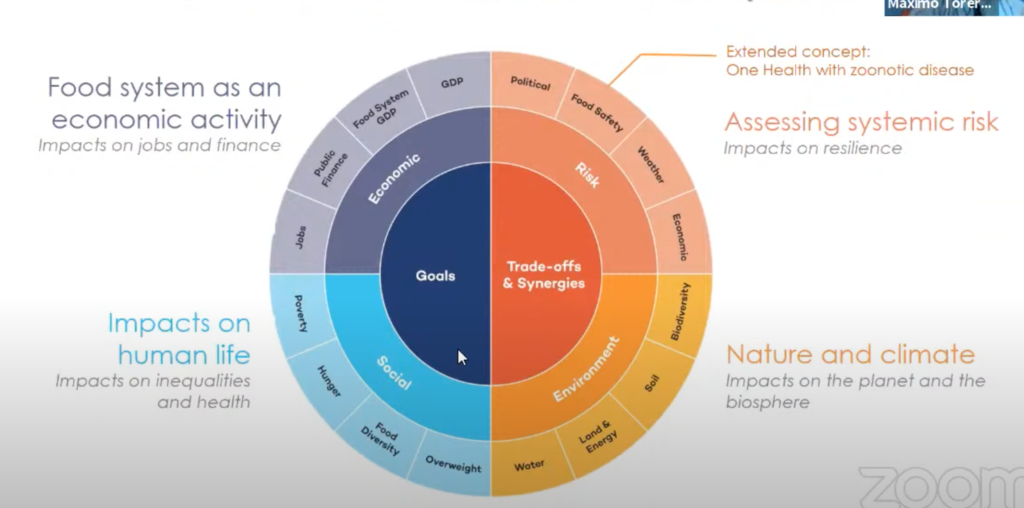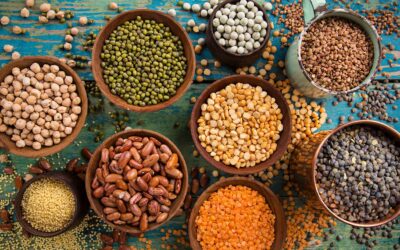As a student of the MSc CCAFS programme I was lucky enough to attend this years annual conference of the Irish Forum for International Agricultural Development (IFIAD). This event was very interesting and engaging and gave a great insight into how some key people in the area of food security and agriculture are thinking about sustainable food systems in the context of not only climate change but also the UN Food Systems Summit and of course COP26.
In this blog post I’d like to give my thoughts on some key issues that were discussed at the conference, some areas where I saw there to be a lack of consensus and some key issues that were not discussed by the speakers but that should be brought up at the Food Systems Summit and at COP26.
Key Issues
Pathways need to be developed by individual countries however these need to be developed from a larger framework spanning over country boundaries. This will be needed in order to create cohesive progress with multiple nations moving in the same direction.
This issue can be extended further to consider that farmers and indigenous people are invaluable players within food systems. At a global level, trade regimes need to be developed to promote more sustainable food systems, at a country level policies need to be implemented to enable and encourage new farming systems and at a regional/smallholder levels the farmers need to be engaged to put these new systems into practice. It was emphasised by multiple speakers at the conference that farmers must be trusted and brought into projects early to encourage their engagement. Farmers have key knowledge about food systems that scientists and policy makers alike are lacking and it was made clear that they need to be given a place at the table of these discussions.
Another very important point that multiple speakers touched on was the role of both the public and private sectors in this process. Funding from both of these areas will allow the implementation of new CSA practices by farmers who would otherwise be unable to do so due to financial barriers.
The key point I am emphasising here which is certainly at the heart of what I took from this conference is that the development of new practices of agriculture will only happen with multi-sector cooperation and collaboration. This was emphasised by Maximo Torero Cullen (Chief Economist of the FAO) who pointed out that it is “impossible for one sector to solve this”.

Lack of Consensus
I found that an area where consensus lacked throughout the conference was related to power structures within the process of transforming food systems. It is unclear who has the power to make substantial changes and who should be responsible for doing so. Multiple times it came back to governments and how policy is the only meaningful way to create system changes. However governments are heavily influenced by the large corporations within their country or engaging in trade with their country so therefore these companies have some power in decision making also, whether that be direct (they sit on the boards making decisions) or indirect (They can influence the implementation of policy that may be beneficial or not beneficial to them. Something which occurs in all countries but may be more problematic in countries with unstable governmental systems).
It was also clear that there isn’t consensus on whether significant actions will actually be taken across the world to attempt to prevent reaching 1.5°C global warming in the coming decade. Multiple speakers believed it was possible to do this, however the impression was not given that we can be sure people will act.
Key issues not discussed
My personal favourite quote I heard during the conference was:
“People make short term change based on risk and long term change based on opportunities”
This was shared by Prof. Mark Howden, Vice Chair of WG2 at the IPCC and I find it to be a very good indication of how changes will have to be made going forward. Comparisons are often made between the COVID-19 pandemic and the issue of climate change however there is a significant difference in that during the pandemic, people could see an immediate risk and therefore they mobilised to make immediate changes. Climate change is challenging in a different way because the vast majority of people cannot see the risk from where they stand. This brings me to what I feel was missing at the conference discussions and needs to be brought up both at the Food Summit and at COP26.
If we are to take inspiration from the above quote then I believe people need to be shown the potential good that will come from changing their food systems. Rather than informing farmers “your maize crop will begin to fail in the coming years” maybe it would be more productive to inform them “with new varieties and new cropping methods you can maintain high yields while also play a part in the mitigation of climate change”. Of course this example is very specific however what I am highlighting is the need to show smallholders and large scale farmers alike, the tangible benefits they can get from introducing more sustainable farming practices and from pivoting their production in a more climate-smart direction. Encouraging these farmers along with producers to put sustainable changes into their production and supply chains may require financial incentives and I feel these are the discussions that need to be had at the Food Summit and COP26. How can we encourage people across multiple levels of food production systems to make tangible changes as soon as possible?
If you’d like to read a bit more about the links between food systems and climate change you can do so at the below link.
https://www.wfp.org/stories/cop26-fix-climate-crisis-we-must-address-broken-food-systems
If you would be interested in reading more about how agriculture and climate change are closely linked due to emissions, along with many other factors I can recommend the below paper by Prof. Howden, mentioned above.
Reisinger, A., H. Clark, A. L. Cowie, J. Emmet-Booth, C. Gonzalez Fischer, M. Herrero, M. Howden, and S. Leahy. “How Necessary and Feasible Are Reductions of Methane Emissions from Livestock to Support Stringent Temperature Goals?”. Philos Trans A Math Phys Eng Sci 379, no. 2210 (Nov 15 2021): 20200452. https://doi.org/10.1098/rsta.2020.0452. https://www.ncbi.nlm.nih.gov/pubmed/34565223.



